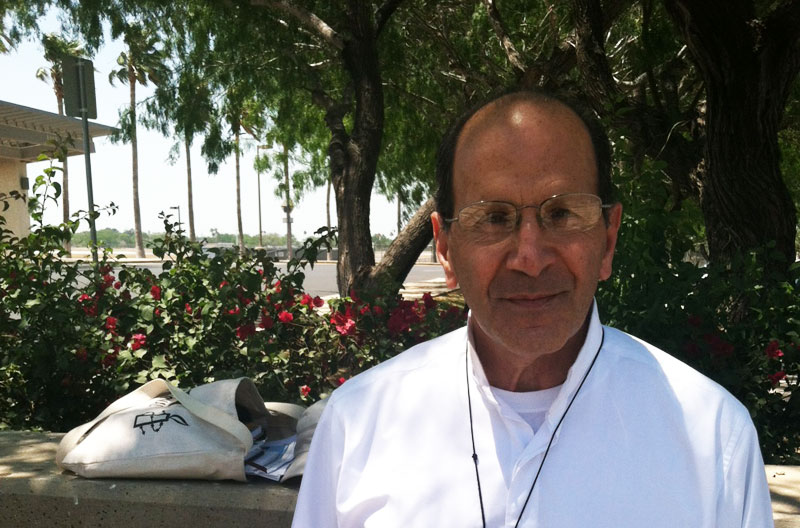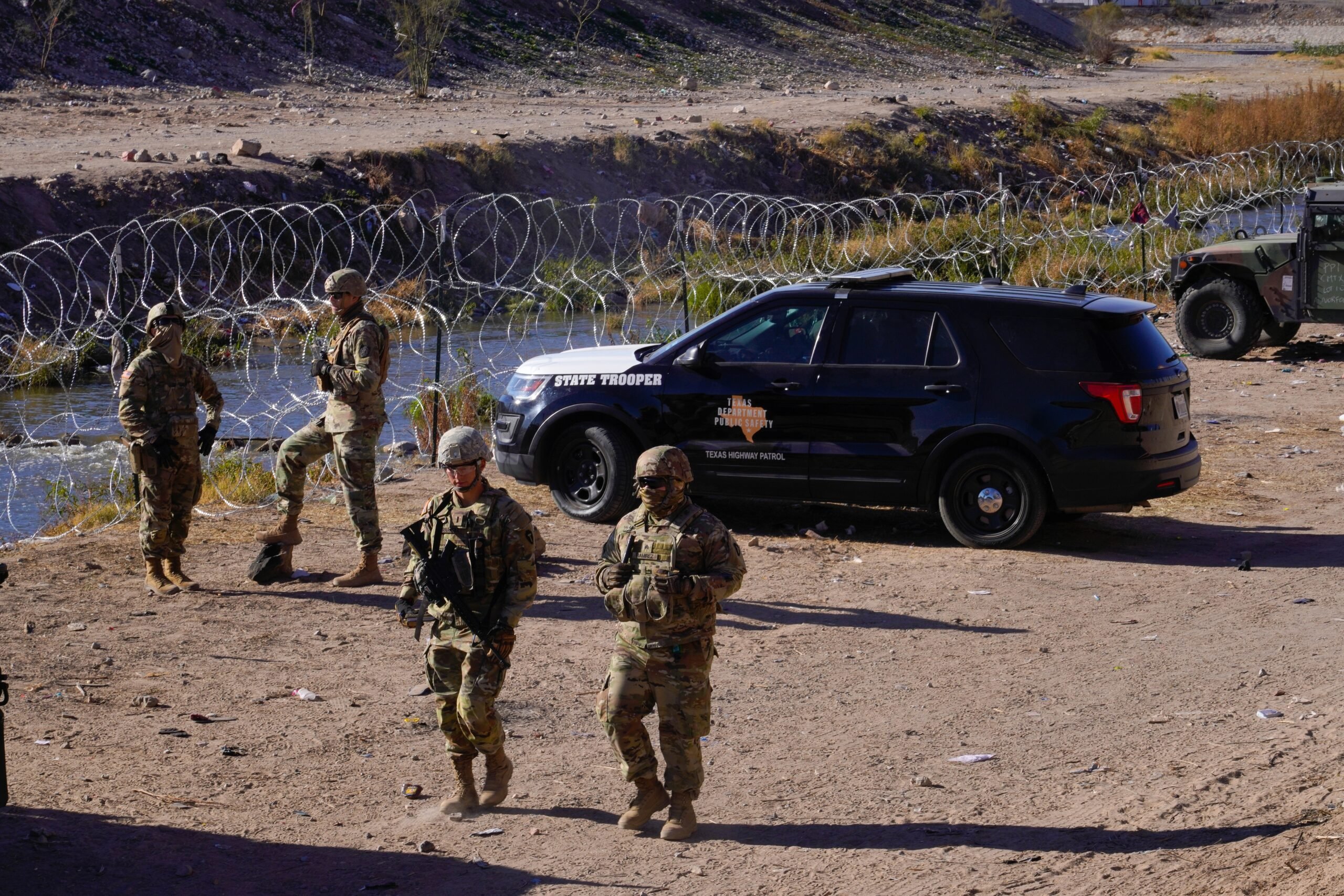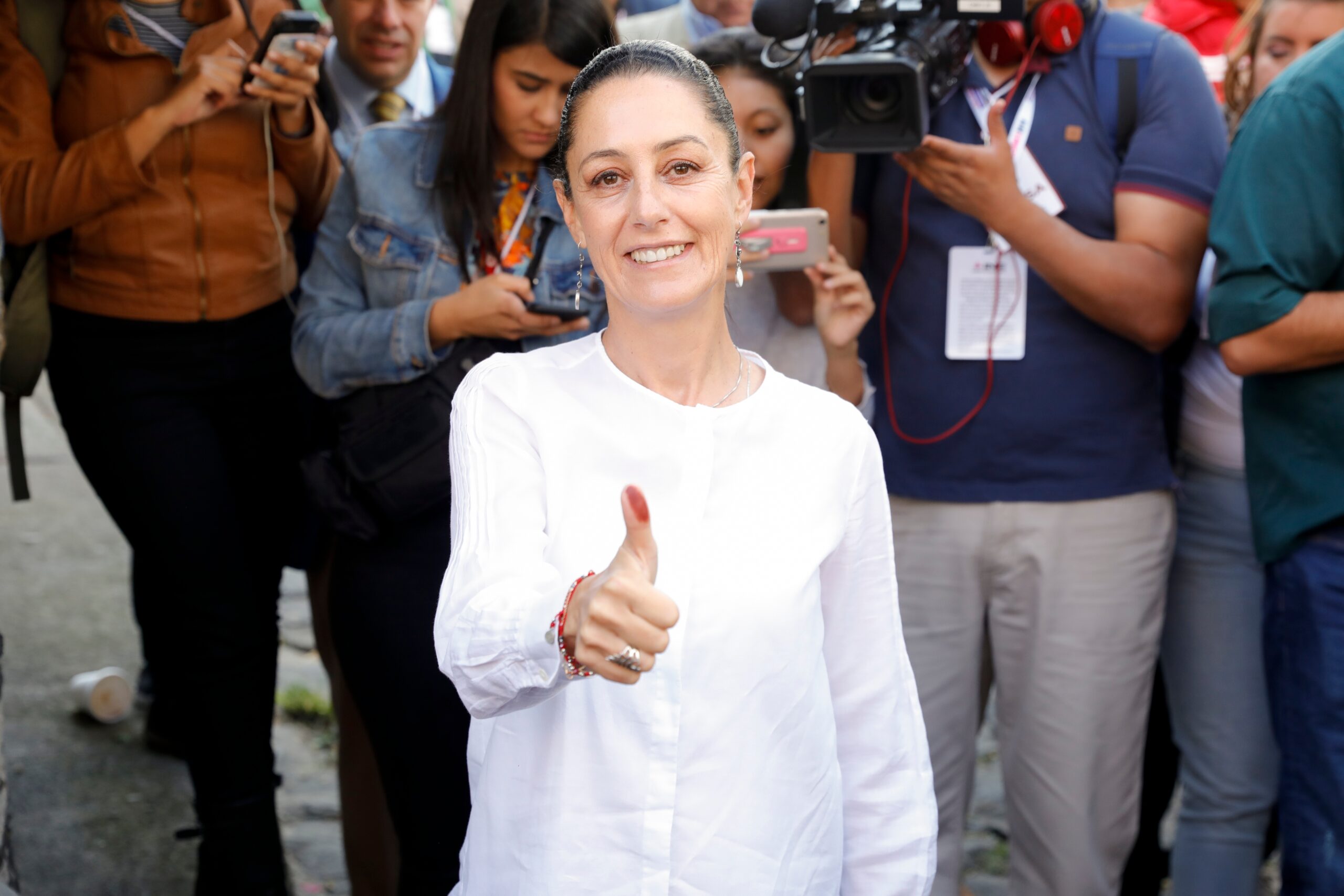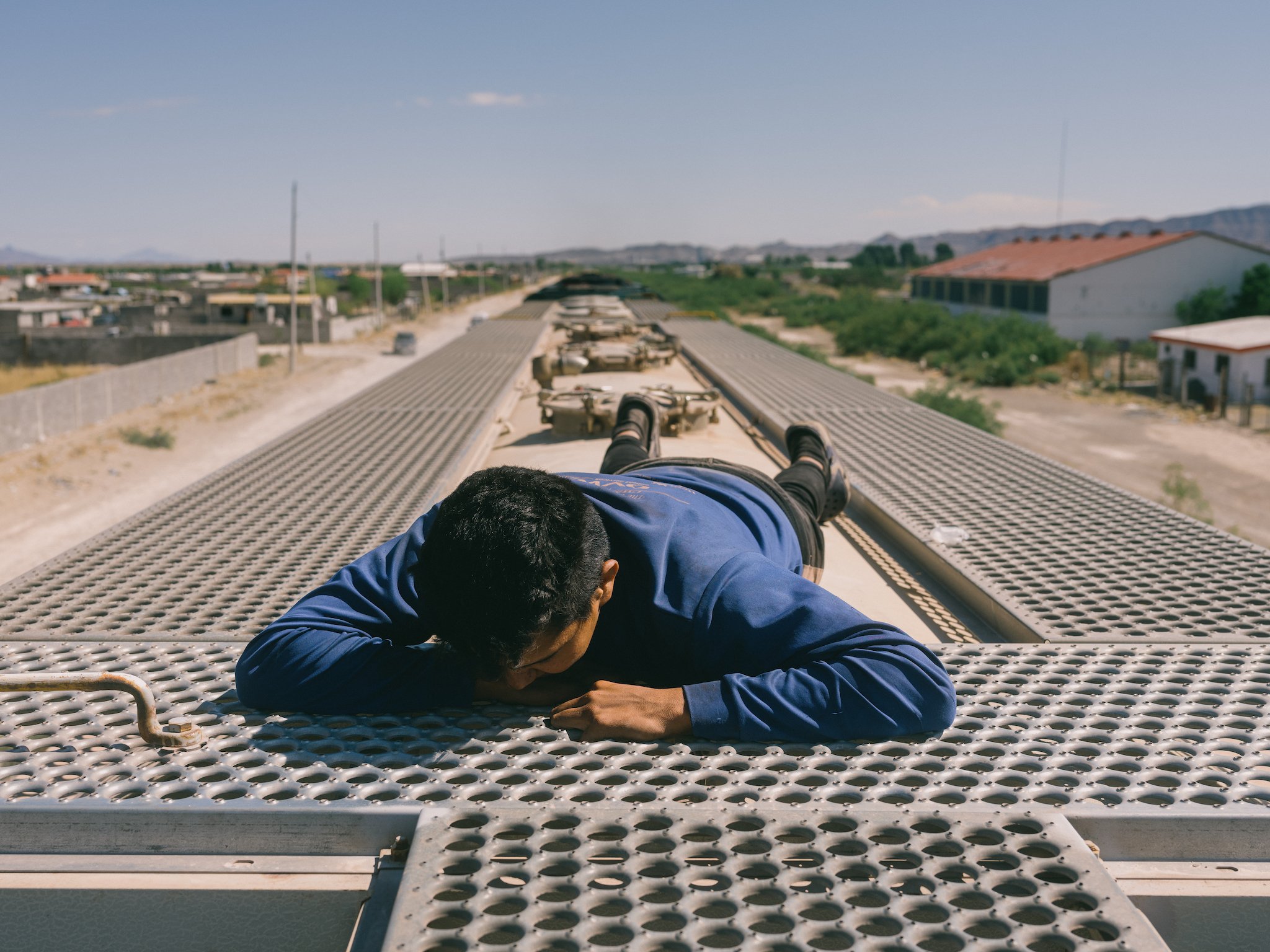
The Priest Who Travels With Bodyguards
And Mexico's Growing Human Rights Crisis

It’s early April and Catholic priest Alejandro Solalinde, 68, arrives in McAllen where he will be the keynote speaker at a migrant smuggling and human trafficking conference. He shoulders a worn Amnesty International bag stuffed with paperwork, his Bible, and his passport. Solalinde is accompanied by a quiet, watchful man with dark eyes. He is just one of the priest’s four bodyguards. The rest wait in Mexico where Solalinde has received a series of death threats.
Father Solalinde is not well known in the United States. But when he visited neighboring Matamoros— a Mexican border city wracked by gun battles and kidnappings—a day earlier, people rushed to hug and touch the humble priest as if he were a talisman. They jockey for position in the crowd to snap photos with him. In Mexico, he is recognized for his bravery. He dares to speak out about corrupt government officials, organized crime and even the Catholic Church, which Solalinde argues hasn’t done enough to fight poverty and violence, which are at the root of the massive migration north—a great outpouring of the poor and brutalized, which he calls a “humanitarian disaster.”
Solalinde founded his migrant shelter Hermanos en el Camino (Brothers on the Road) near a busy railway junction used by migrants in 2007 in Ixtepec, Oaxaca. It was a precipitous moment. President Felipe Calderon had launched the drug war in 2006, sending military troops into cities and towns to battle the drug cartels. Trafficking organizations were branching out becoming multi-billion-dollar global corporations. The brutal Los Zetas and other gangsters began to refer to the mostly Central and South American migrants who sought refuge in Solalinde’s shelter as their merchandise.
The world turned upside down. Priests began to fear for their lives and the criminals flaunted their power. The first death threat came shortly after he opened the shelter, says Solalinde. “It was a Zeta kidnapping migrants. We started protecting the migrants at the shelter. One of my assistants took a picture of the kidnapper. He said ‘you take a picture again and I am going to shoot you here,’” Solalinde points at his forehead.
The well-worn pathways north to the American Dream are fiercely divided and protected. Organized crime and corrupt officials demand their cut from anyone passing through their territories. Every step of the migrants’ route has a price. It is a feudal arrangement. A migrant must pay corrupt transit cops and organized crime $100 for the right to cling to the top of a dilapidated freight car as it rolls through their territory. When the migrants arrive at the next station they pay another cop $100. “God help you if you can’t pay, because then the criminals take you,” says Solalinde. “They violate the women. The migrants are kidnapped, held for ransom.”
At his shelter, Solalinde provides food, shelter and medical care. “It’s as if they were programmed and nothing can convince them that they should change their path,” he says of the people who come to his shelter. “ I tell them ‘don’t go. They’re going to kidnap you.’ And they tell me, ‘we’ll make it with the help of God.’ And I say, ‘Yes, but God can’t stop kidnappings, so what are you going to do?’”
What propels the Central Americans forward is their collective, brutal past. “Countries like Guatemala have suffered genocides over many years,” says Solalinde. “The extermination of entire towns. When you treat a town or a person that way, there have to be lingering social effects. But there’s also countries like El Salvador, that experienced a civil war for many years. Those wounds still haven’t healed. Society remains paralyzed in a way, it still hasn’t been able to take off economically and in this case, again, the Catholic church has not been able to help the people to heal those wounds.”
In the new world order, he says, money is overvalued and human beings are merely vessels to be exploited. “Crossing Mexico has become a very dangerous venture. Most of the young men and women are just looking for work, for an opportunity. But sometimes they are used to transport drugs or forced to work for organized crime.”
Solalinde has not been shy speaking publicly about the collusion between government officials and organized crime in the growing brutality against the migrants who come to his shelter. After denouncing corrupt officials in 2012, the priest received death threats which compelled him to leave the country for several weeks. “It’s unthinkable that in Mexico there would be this growth in organized crime in all sectors without thinking about the complicity of public officials,” Solalinde told a crowded auditorium during his keynote address in McAllen, which was organized by UT Brownsville and South Texas College. “The cartels aren’t alone. They’ve always infiltrated the inner circles of all institutions, or almost all institutions, and have been able to operate that way. Mexico has become uncertain; Mexico has become unsafe, no matter how much the previous government tried to deny the facts.”
After fleeing Mexico in May 2012, Solalinde was suddenly a man without a country. The priest traveled to North America and Europe to meet with human rights and religious organizations. The Inter-American Commission on Human Rights, an independent agency of the Organization of American States, had already pressured the Mexican government in 2010 to provide him with bodyguards after he’d been detained and held at gunpoint by the Federal Police. At the time, he had been pressuring the Office of the Public Prosecutor of Oaxaca state to investigate the murders of three migrants.
In June 2012, he flew to Geneva to meet with Navi Pillay, the United Nations High Commissioner for Human Rights. Pillay sent a team of security experts to Ixtepec to design a protective wall around the migrant shelter and reinforce Solalinde’s sleeping quarters so that he could return to Mexico.
“We now have four state police who guard the shelter, and I have four federal agents as bodyguards,” says the priest, who is still uneasy with the idea of traveling with bodyguards. “I am a servant of Christ and that’s all,” he says. “I don’t want anyone holding the door for me or stopping traffic so that I can pass.”
Javier Hernández Valencia, the Representative in Mexico of the UN High Commissioner for Human Rights, says his agency and other human rights advocates had to convince Solalinde to keep the bodyguards. “He was very uncomfortable with the idea of the bodyguards,” says Hernandez. “But the very sad perspective of having him wounded or killed was enough for us to insist he accept these measures at least for the time.”
The supreme irony has not been lost on Solalinde that his body guards and the guards at the shelter come from the same law enforcement agencies that are often corrupted by organized crime. The priest says he has worked hard to gain their trust and win them over to the cause of defending human rights. “They were baptized, and all four of them are Catholic,” he says of his bodyguards. “ I told them if you were baptized, you can’t just be a cop, you have to turn your police service into a mission. You are not protecting me or defending me, you’re protecting the cause that I work for. I try to raise their awareness and remind them of their love for Mexico. But the real key to a police officer’s heart is to care about him as a person. I care about them, and about their families.”
But the priest says that his guards are largely symbolic. “It doesn’t matter if you have eight bodyguards,” he says. “Don’t you remember what they did to that retired general in Nuevo Laredo? If they really want to kill you, they will.”
Sadly, Father Solalinde’s predicament is not unique, says Daniel Zapico, a spokesperson in Mexico for the human rights group Amnesty International. Other priests who run migrant shelters such as Fray Tomas Gonzalez in the state of Tabasco and Father Pedro Pantoja in the state of Coahuila have also received death threats because of their work, he says. “Organized crime is trying to attack the migrants and these priests are trying to prevent it,” Zapico says. “But the biggest problem is not just the threats but the impunity from the local to the federal level,” he says. “The government refuses to acknowledge that civil servants linked to organized crime are often behind the threats. They want to characterize it as just a few bad actors instead of a systemic problem.”
And the threats aren’t just limited to priests. “The threats against human rights defenders, journalists and those who are working with the most vulnerable populations such as women and migrants are increasing and getting worse,” Zapico says. “Human rights defenders deserve recognition and they deserve protection.”
But both the United States and Mexico have failed to fully acknowledge the growing human rights crisis in Mexico, which has grown exponentially since the drug war began in 2006. A year after Calderon’s war was launched, the United States pledged $1.9 billion to help combat organized crime in Mexico through a multi-year agreement called the Merida Initiative. According to the initiative, 15 percent of that aid can be disbursed only if Mexico is meeting four human rights requirements: ensuring that federal police and military officials who commit human rights abuses are investigated and prosecuted by civilian prosecutors in civilian courts, that Mexican civil society organizations are consulted regularly on the implementation of Merida Initiative measures, the prohibition of testimony obtained through torture and improving the transparency and accountability of law enforcement.
The Mexican government hasn’t fully complied with any of these measures, according to human rights organizations. There were 7,441 human rights complaints filed against Mexico’s military from 2006 through 2012, according to Mexico’s National Human Rights Commission (CNDH). None of these complaints have led to a conviction in Mexico’s civilian court system. In military court during the same period of time, only 38 military personnel have been charged with human rights violations out of the 5,000 cases opened by the military, according to the nonprofit Human Rights Watch.
The United States continues to provide Merida funding despite Mexico’s failure to meet the human rights requirements stipulated in the agreement. “The Mexican government is not working fast enough to implement measures that would prevent attacks against journalists and human rights defenders,” says Zapico. Already, 62 journalists and media workers have been killed in Mexico since 2000, according to the nonprofit press freedom organization Committee to Protect Journalists.
On May 2, President Obama will arrive in Mexico for talks with President Enrique Peña Nieto who took office in December. A U.S. State Department report released last week on the human rights situation in Mexico paints a troubling picture of “significant human rights-related problems included police and military involvement in serious abuses including unlawful killings, physical abuse, torture and disappearances.”
During the meeting with Obama, Peña Nieto will undoubtedly be anxious to discuss economic development. Since taking office in December he has tried to turn the international and national conversation away from his country’s human rights and security crisis. But ignoring the problem doesn’t make it go away, says Solalinde.
“Enrique Peña Nieto’s new government is trying to show a different image…As if with the change of party, we were already a better Mexico: a peaceful Mexico, a Mexico that respects human rights, a safer Mexico, not only for migrants but for capital – for investments. This is not true,” the priest told the audience in McAllen. “Mexico’s situation isn’t going to get better because the press puts out less information about the violence. It’s also not going to be resolved by trying to make the people believe through speeches and rhetoric that the migrants’ situation has changed. The truth is it hasn’t. A real, practical and effective change hasn’t been attainable in human rights.”
And until the change comes, the 68-year old priest with the Bible and the bodyguards will keep advocating for the men, women and children seeking shelter along the way.


